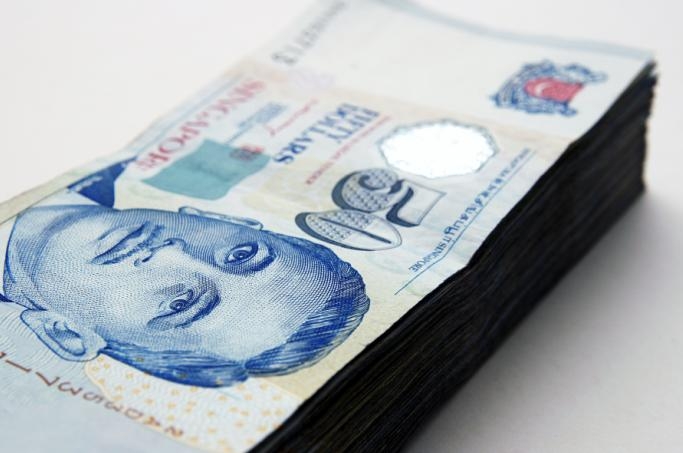
Singapore dollar trades at $1.2673
The local currency remained unchanged against the US dollar despite a flight to safety, says IG Markets Singapore.
IG Markets Singapore said:
The Singapore dollar has remained unchanged against the greenback overnight despite a flight to safety following weak factory output data.
The local currency is trading at $1.2673 this morning, still at its elevated height after the EU summit sent risk currencies higher last Friday.
While there is still a positive buzz from the EU measures announced these have been reined in considerably from poor manufacturing data from the world’s biggest economies.
The US dollar could weaken as expectations grew for asset-buying from the Fed this week with economic data continuing to disappoint.
BK Asset Management meanwhile noted (for 2 July 2012 trading):
With near term risks in the euro neutralized by the announcements made during last week's EU Summit, investors have shifted their focus from fiscal to monetary policy.
There are 3 main central bank rate decisions this week in Australia, U.K. and the Eurozone but speculation about what the Federal Reserve could do is also having an impact on the markets.
Surprisingly weaker economic data drove the U.S. dollar lower against the Japanese Yen on concern that the case is building for QE3. For the first time in nearly 3 years, the manufacturing sector contracted. The ISM index dipped below the 50 mark that separates expansion from contraction in June with the index falling to 49.7 from 53.5.
While the employment component or the amount of hiring only dropped slightly, prices paid fell to a 3 year low and new orders experienced a steep decline. The U.S. is a service based economy but the drop in manufacturing cannot be ignored and if service sector activity also slows, the Fed could be forced to pull the trigger on additional stimulus.
Non-farm payrolls are also scheduled for release this week. After 2 months of subpar NFP numbers, the labor market market should go a long way in confirming whether the slowdown in job growth has become a trend. If payrolls fail to rebound in June, we could see QE3 on August 1st.
RBS, on the other hand, reported (for 2 July 2012 trading):
Despite the decline in the ISM manufacturing index into contractionary territory, US equities and risk oriented currencies performed well into the close. The soft ISM manufacturing index painted a conflicting picture for the USD and risk markets.
On the one hand, declining prospects for global growth may have weighed on risk appetite but US QE3 expectations may have increased, yielding a potentially positive effect on risk assets including commodities and equities.
The RBA decides on the Cash rate today and we are in line with the consensus expecting no change. International tensions stemming from the Euro-area have eased dramatically following last week's EU Summit, which may take pressure off the RBA. But concerns likely remain around growth prospects in China.
























 Advertise
Advertise






